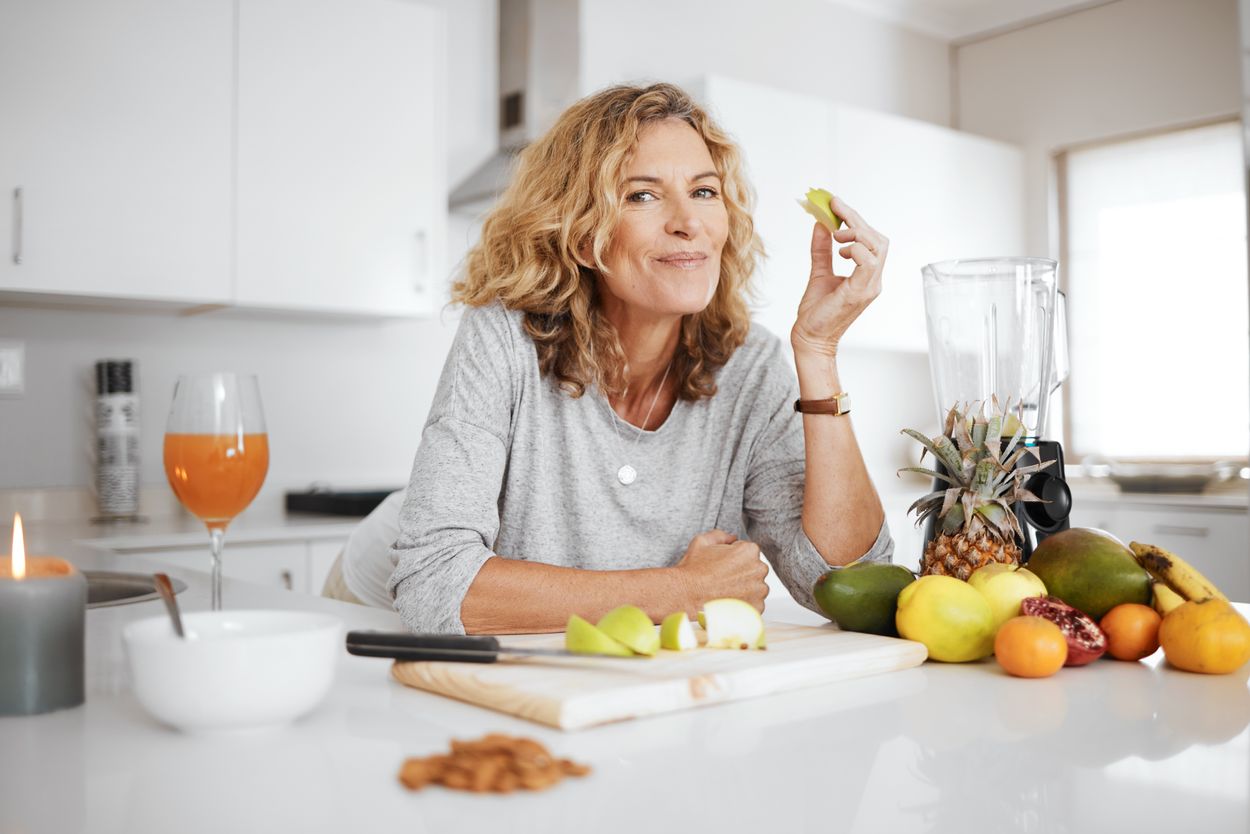Nutrition to aid Menopause
5th June 2024

As females reach the age of 45, they begin to lose their ovarian follicular function, and there is a decline in circulating blood oestrogen levels, more commonly known as menopause.
Most symptoms of the menopause happen naturally to women, before they no longer have periods, and the duration of these symptoms can be between a few months to over a year. Symptoms of the menopause can be unpleasant for some women, who sometimes resort to recommended supplements and diets that can relieve them from symptoms or make the menopause easier for them to deal with.
Symptoms can include tiredness, anxiety, mood swings, brain fog, hot flushes, and irregular periods. As the body changes into menopause, additional symptoms can become present: joint pain, vaginal dryness, worsening concentration, palpitations, weight gain, and more. There are products available to help with symptoms that can replace the missing hormones and help relieve symptoms, but what about diet?
Eating a healthy balanced diet can help relieve some of the symptoms listed above, particularly tiredness and fatigue, as well as reducing joint pain from lowering the risk of gaining weight. It is important to have calcium rich foods such as milk, yoghurt, and kale to keep bones healthy, as well as high protein foods to help replenish muscles and keep them strong to protect the joints; protein foods include plant based such as beans, pulses and tempeh, or non-plant-based proteins like meat, eggs, and fish.
Reducing caffeine and alcohol intake will help reduce hot flushes, but also avoiding spicy foods will help too. Phytoestrogens have a similar profile to human oestrogen and are often used to also reduce hot flushes. You can find phytoestrogens in foods such as: soy-based products, peanuts, sesame seeds, flaxseeds, chickpeas, berries, barley, apricots, and tea.
During menopause, oestrogen levels lower leading to risk of weight gain as oestrogen helps to regulate our metabolism. So, it is important to get into healthier habits with foods, exercising regularly to increase your basal metabolic rate, and educating ourselves on the types of foods we consume for optimal health, that will naturally help reduce symptoms of menopause.
If you are wanting to learn more about how to create healthier habits and eating a balanced diet, please check out the following link and get in touch to join our weight management programme.
As well as a balanced diet, getting the right amount - and type - of exercise can be beneficial to those looking to relieve menopause symptoms. We deliver free workout classes and in-person & digital walking groups in locations across Cheshire East: visit our Move More page to find out more.
